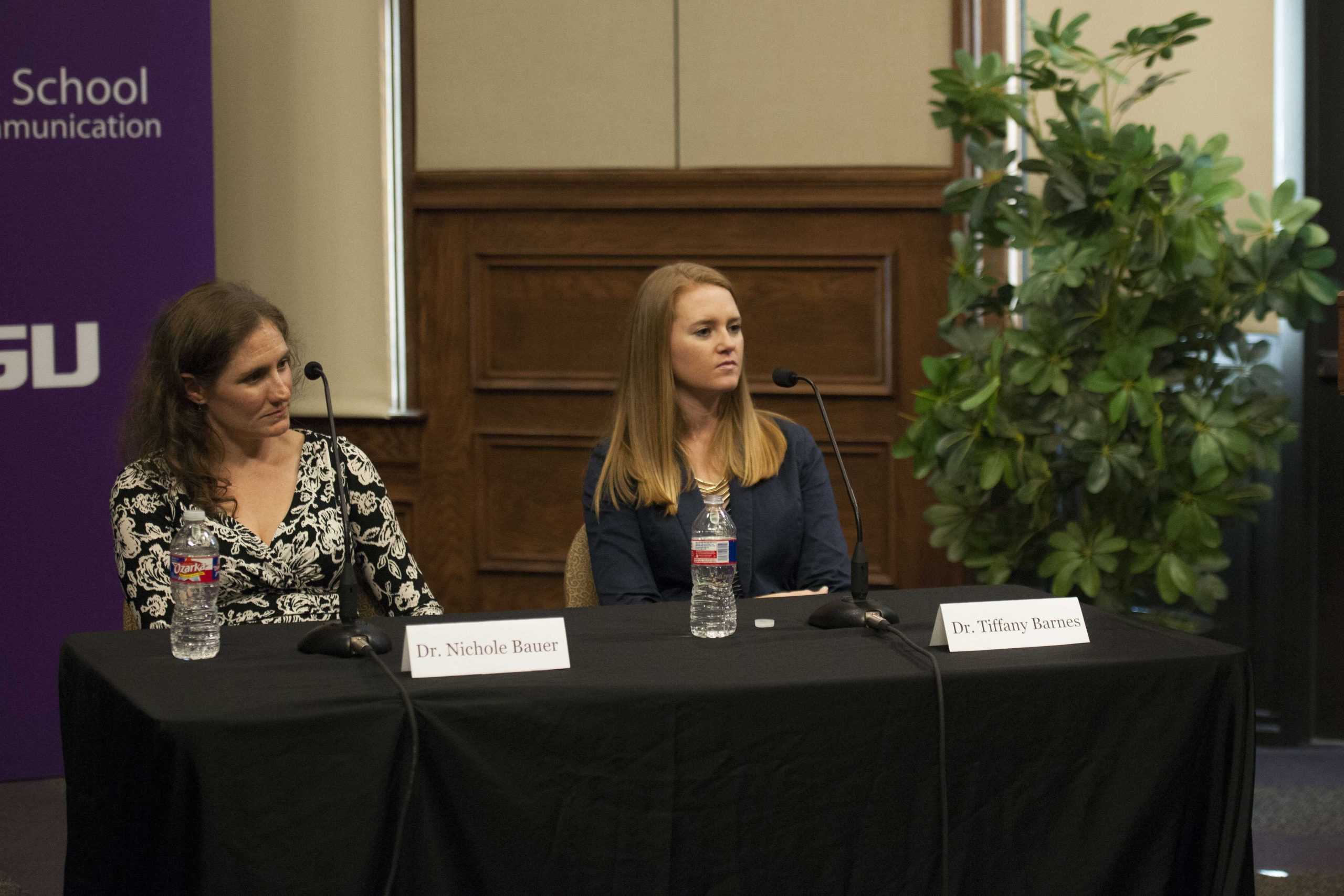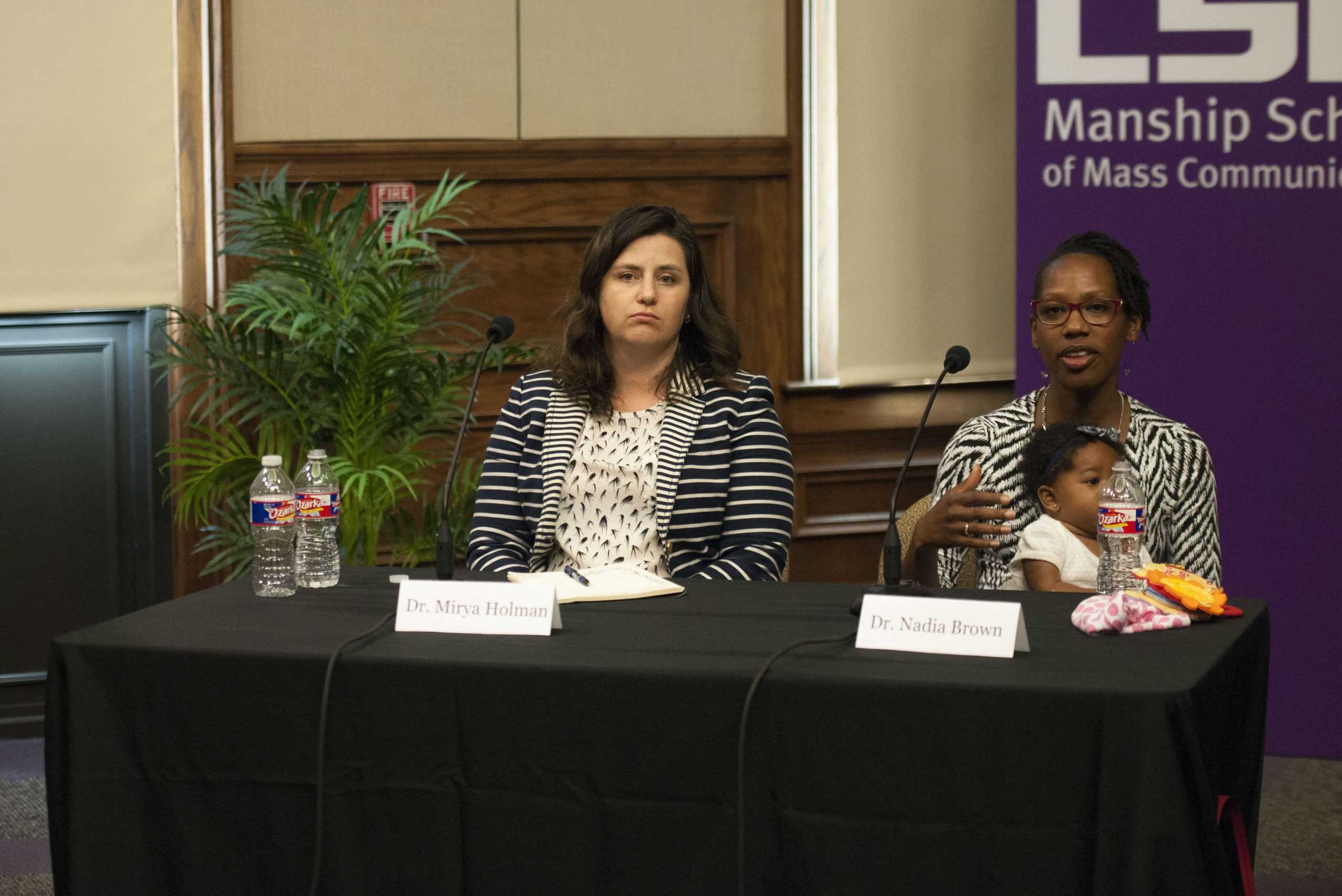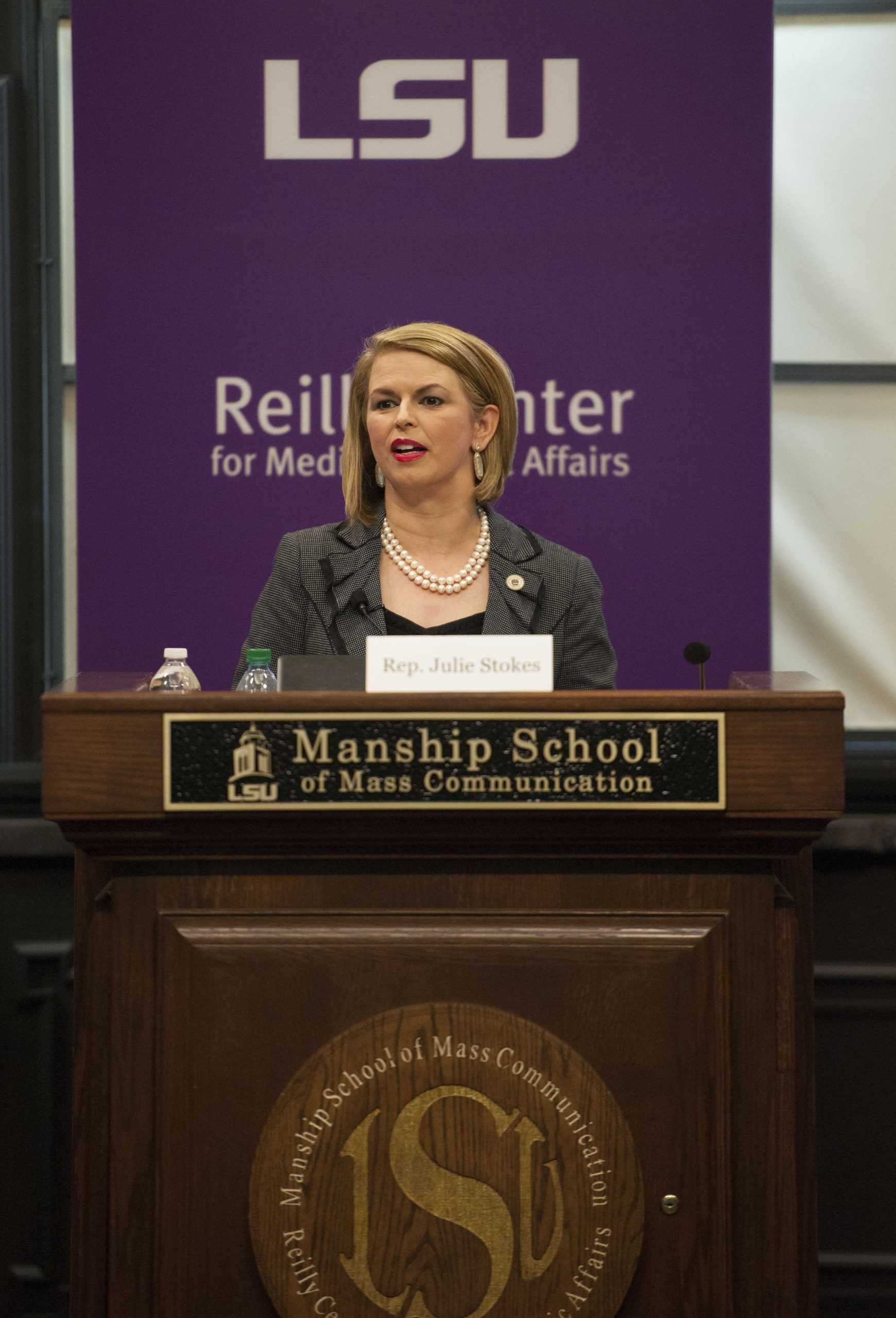A panel of female professors studying women in politics gathered to discuss some of the challenges women face when deciding to pursue political positions in America.
Rep. Julie Stokes, R-Kenner, hosted “She Persisted: Women at the Ballot Box and on the Campaign Trail” panel at the Holliday Forum in the LSU Journalism Building on Thursday afternoon.The event was presented by the Manship School of Mass Communication’s Reilly Center for Media and Public Affairs and the LSU Women’s Center.
Panelists included LSU assistant professor of political communication Nichole Bauer; University of Kentucky associate professor of political science Tiffany Barnes; Tulane University associate professor of political science Mirya Holman and Purdue University associate professor of political science and African-American studies Nadia Brown.
“Women have different issues,” Stokes said. “We have health issues, children raising issues, having children issues. There’s a lot that goes into life that’s a little bit different than it is for men.”
Bauer said gender was an issue during the 2016 presidential election, since former candidate Hillary Clinton was a woman running for president.
“The first woman who wins the nomination of a major political party running for political office, how could it not?” Bauer said. “We saw many examples of gender dynamics coming into play with basic criticisms on her smile. Should she smile? Should she not smile? Should she show teeth when she smiles? Nobody seemed to care with her male opponents.”
Barnes said gender played a role because of how specifically white women behaved. While white women were perceived to support Clinton, majority of white women voted for President Donald Trump. She said white women have sexist attitudes and think women should play a more conservative, traditional role in society.
Holman said she has studied whether people believe women are strong enough to hold the position of commander in chief. She said Clinton was questioned whether or not she was strong enough to hold that position because she was a woman.
“The idea [is] that [women] have preconceived beliefs that men are going to be better at particular things,” Holman said. “There’s a lot of evidence that suggests that voters are reluctant to believe that even though Hillary Clinton had a lot of foreign policy experience, she wouldn’t be able to protect our country.”
Brown said the next woman in a high position in politics might be a woman of color.
“Voters consistently think of black women as strong women that are able to withstand and handle a lot of hardships,” Brown said. “They are thought of as tough leaders. In my opinion, I think that if we do see a woman move to the forefront of the 2020 election it might perhaps be a woman of color.”
Barnes said research shows people who come from business and law backgrounds do not perform any better as politicians than those who do not have those traditional backgrounds. Those who do not have traditional backgrounds are less likely to become involved in corruption, she said.
Stokes asked the women why women make great leaders and what tactics they use to flourish in a male-dominated field. Bauer explained women have to balance being seen as both tough and likable, and display both masculine and feminine traits.
Holman provided encouragement for young women interested in pursuing political positions. She said part of the process of running for office is losing and women should not be deterred by it.
“Do it afraid, be bold and speak with great authority,” Stokes said.

















